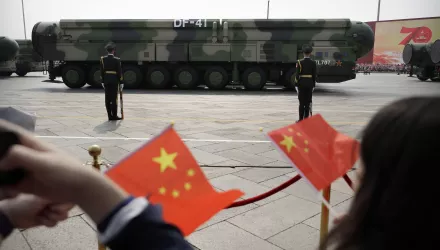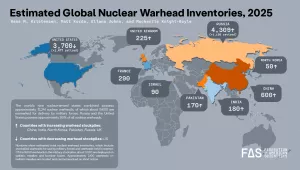Moderator:
Dr. Togzhan Kassenova is a Washington, DC-based senior fellow at the Center for Policy Research, SUNY-Albany and a nonresident fellow in the Nuclear Policy Program at the Carnegie Endowment for International Peace. She is an expert on nuclear politics, WMD nonproliferation, and financial crime prevention. She currently works on issues related to proliferation financing controls, exploring ways to minimize access of proliferators to the global financial system. From 2011 to 2015 Kassenova served on the UN Secretary-General’s Advisory Board on Disarmament Matters. She is the author of Atomic Steppe: How Kazakhstan Gave Up the Bomb (Stanford University Press, 2022).
Panelists:
Jessica A. Schwartz approaches research on musical representations and sonic histories of militarization and imperial violence through community-focused collaborations, movements, and creative dissent. Schwartz is the author of Radiation Sounds: Marshallese Music and Nuclear Silences (Duke University Press, 2021) and articles in American Quarterly, Music & Politics, Women & Music, the Journal of American Music, Punk & Post-Punk, the Journal of Transnational American Studies, Journal of Interdisciplinary Voice Studies, Amerasia, Shima, Riffs: Experimental Writing on Popular Music, among others, which showcase her work on American studies, Pacific studies, environmental anthropology, and Indigenous studies. As a disability scholar, Schwartz interrogates institutional, intersectional ableism and workshops radical accessibility in and beyond the classroom in courses such as “DIY: Punk Organizing as Social Justice” and “Unsettling Pedagogies: Music & Education.” Schwartz’s hosts the Punkast Series (podcast), is the cofounder/Academic Advisor of the Marshallese Educational Initiative, an Arkansas-based non-profit, and plays in noise/punk bands.
Magdalena Stawkowski is an Assistant Professor in the Department of Anthropology and a faculty associate at the Walker Institute for International Studies. She is also a researcher at the Danish Institute for International Studies in Copenhagen and a fellow in the Center for Slavic, Eurasian and East European Studies at the University of North Carolina-Chapel Hill. Stawkowski received her PhD from the University of Colorado Boulder in 2014. Previously, she was a postdoctoral teaching scholar in the Department of Sociology and Anthropology at North Carolina State University. Prior to that, she was a MacArthur Nuclear Security Fellow and a Stanton Nuclear Security Fellow at the Center for International Security and Cooperation (CISAC) at Stanford University. Her research has been supported by a number of grants, including those from the National Science Foundation, the Social Science Research Council, IREX, the Danish Council for Independent Research, and others.
Sébastien Philippe is a scientist and Associate Research Scholar of Public and International Affairs with Princeton University's Program on Science and Global Security. His research focuses on nuclear arms control, disarmament, and justice issues. He is the co-author of Toxique (French University Press, 2021), an investigation into the radiological and environmental impact of French nuclear tests in the Pacific, which was a Finalist for the 2021 Albert Londres Prize (the French equivalent of the Pulitzer) and won a 2022 Sigma Award for best data journalism in the world among other accolades. Philippe holds a PhD in Mechanical and Aerospace Engineering from Princeton, was a Stanton Nuclear Security Postdoctoral fellow with the Project on Managing the Atom and the International Security Program at the Harvard Kennedy School's Belfer Center and has served as a nuclear weapon system safety engineer in France's Ministry of Armed Forces.



